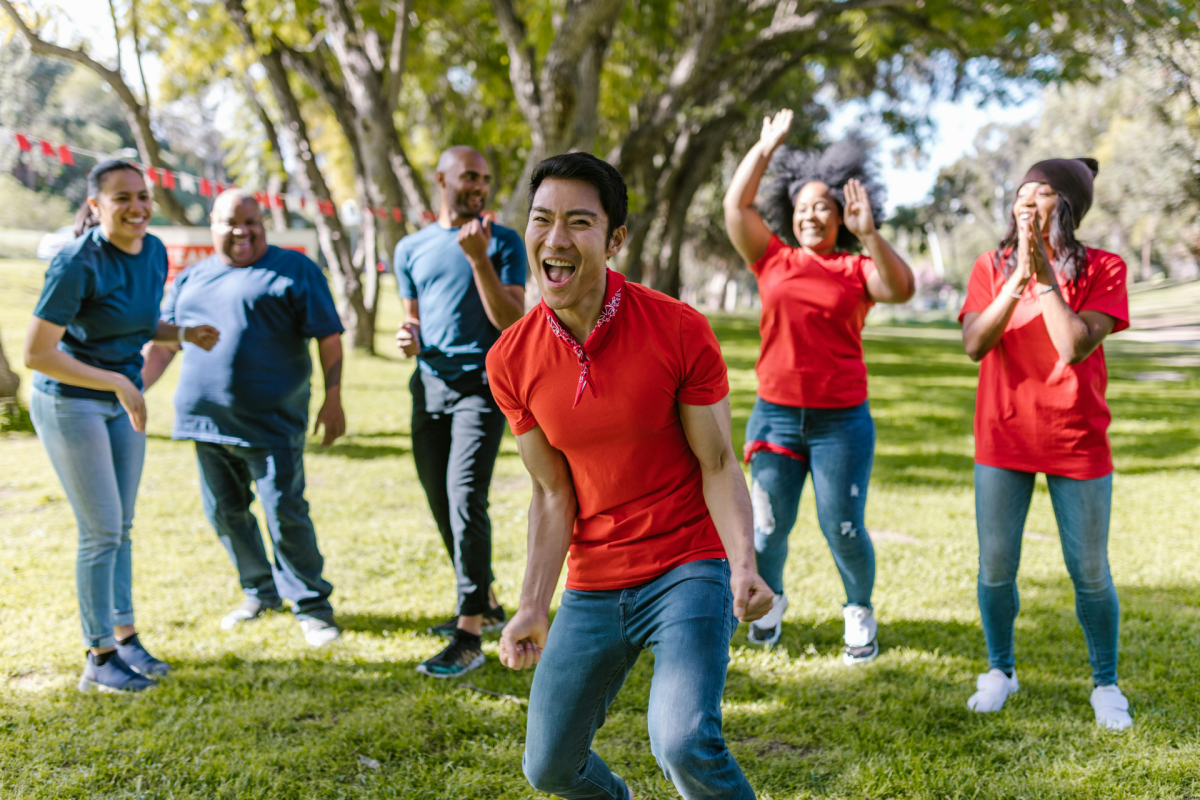Overcoming Learned Helplessness
Feeling unable to alter your circumstances regardless of effort can be disheartening. This acceptance of the status quo embodies a toxic motivation.
That feeling of being trapped and powerless is known as learned helplessness.
“There is no such thing as helplessness. It’s just another word for giving up.” – Jefferson Smith
We will explore the causes and signs of learned helplessness, how it can affect your life, and, most importantly, how to overcome it. We will also provide tips on how you can help someone else break free from the cycle of learned helplessness.
Let’s empower ourselves and others to live a more fulfilling life.

What is Learned Helplessness?
Learned helplessness refers to a mental state where an individual feels powerless to change a situation, even when solutions are possible.
This phenomenon often arises when a person has experienced repeated failures or setbacks, leading them to believe that their actions have no real impact on the outcome. It can have detrimental effects on one’s mental well-being, leading to feelings of hopelessness, low self-esteem, and depression.
For instance, a student who consistently performs poorly in exams despite studying diligently may develop learned helplessness and lose motivation to improve. In relationships, individuals stuck in an abusive cycle may also exhibit signs of learned helplessness, feeling unable to break free from the toxic situation.
Causes of Learned Helplessness
The causes of learned helplessness can be attributed to negative cognitive patterns, lack of self-belief, and maladaptive thinking processes.
Individuals experiencing learned helplessness often exhibit cognitive distortions that magnify obstacles and minimize personal agency. These distorted thoughts reinforce self-limiting beliefs, making breaking free from the cycle of helplessness challenging.
Individuals can challenge and adjust these automatic negative thoughts by engaging in cognitive restructuring techniques, paving the way for more adaptive thinking patterns. Cultivating a sense of self-belief and promoting flexibility in one’s thinking are essential components in overcoming learned helplessness and fostering a more empowered mindset.
Effects of Learned Helplessness on Life
Learned helplessness can significantly impact various aspects of life, including emotional intelligence, self-confidence, and personal development.
When individuals experience learned helplessness, they often find it challenging to regulate their emotions effectively, leading to anxiety, increased levels of stress, and even depression. This can hinder their ability to understand and manage feelings and empathize with others, affecting their emotional intelligence.
A lack of belief in one’s capability to overcome obstacles can diminish self-assurance, resulting in missed opportunities for growth and personal development. For instance, people who constantly doubt their abilities may shy away from challenging situations, limiting their potential for self-improvement and success.
Signs of Learned Helplessness
Recognizing learned helplessness involves identifying signs such as a lack of optimism, diminished perseverance, and reduced problem-solving abilities.
“The most helpless person is the one who is helpless in reforming himself.” – Ali Ibn Abi Talib
Individuals exhibiting learned helplessness may often display a tendency to view challenges as insurmountable obstacles, leading to feelings of powerlessness and hopelessness. They may struggle to bounce back from setbacks, showing low resilience when faced with adversity.
Those affected by learned helplessness may find it challenging to believe in their ability to overcome difficulties, getting stuck in a cycle of negativity and defeat. This negative outlook can hinder their motivation to seek solutions actively and may result in a pattern of avoidance behavior toward challenging situations.
Overcome Learned Helplessness
Overcoming learned helplessness requires resilience training, setting achievable goals, and cultivating a positive mindset.
Resilience-building exercises are crucial in developing the mental strength to navigate challenges and setbacks effectively. By engaging in activities that promote resilience, such as mindfulness practices, journaling, or seeking social support, individuals can build the inner fortitude needed to persevere. Setting specific, attainable goals helps break down daunting tasks into manageable steps, creating a sense of progress and accomplishment.
Adopting a growth-oriented mindset that views failures as opportunities for learning and growth can transform setbacks into stepping stones toward success.
Recognize the Pattern
The first step in overcoming learned helplessness is to recognize the pattern through a growth mindset lens, employ effective coping strategies, and seek empowerment.
By acknowledging the signs of learned helplessness, individuals can begin to break free from the cycle of negative thinking and self-imposed limitations. Coping mechanisms such as mindfulness practices, positive affirmations, and seeking support from loved ones can significantly aid in shifting towards a more empowered mindset. Embracing challenges as opportunities for growth and viewing setbacks as temporary hurdles rather than permanent barriers are critical aspects of fostering a growth mindset in this journey toward empowerment.
Check out the new Motivation Mentor AI Coach
app from Motivation Pay… It’s FREE!
Challenge Negative Thoughts
Challenging negative thoughts involves fostering self-motivation, initiating a mindset shift, and tapping into inner strength for resilience.
This process requires individuals to consciously reframe their perspectives by emphasizing positive affirmations and replacing self-doubt with self-belief. It entails reflecting on past successes, personal growth, and visualizing a brighter future.
Individuals can gradually reprogram their thinking patterns by setting specific, achievable goals and tackling challenges one step at a time. Mindfulness techniques can also help cultivate a positive outlook and build emotional resilience.
“Learned helplessness is the giving-up reaction, the quitting response that follows from the belief that whatever you do doesn’t matter.” – Dr. Martin E. Seligman
Ultimately, individuals can empower themselves to overcome negative thoughts and foster a healthier mindset through consistent effort and a commitment to self-improvement.
Set Small Goals and Celebrate Success
Setting small achievable goals and celebrating milestones is vital to self-improvement, fostering proactive behavior, and enhancing self-efficacy.
Individuals can build momentum and maintain motivation by breaking down larger objectives into manageable tasks. Each small accomplishment serves as a building block toward larger aspirations, instilling a sense of progress and achievement.
This approach boosts confidence and reinforces the belief in one’s abilities to overcome challenges. Embracing this method cultivates a proactive mindset and empowers individuals to take control of their growth journey.
Positive social circles play a crucial role in enhancing one’s overall well-being.
Regularly setting small goals allows for continuous improvement and a more sustainable path to success.
Surround Yourself with Positive People
Surrounding yourself with positive individuals can fuel optimism, provide essential social support, and initiate positive behavioral changes.
Positive social circles play a crucial role in enhancing one’s overall well-being. Being surrounded by optimistic people can help shape your mindset and outlook on life, encouraging you to adopt a more positive attitude toward challenges and setbacks.

With a supportive network of friends and family, navigating through tough times and celebrating victories together becomes more accessible. These relationships can influence your behaviors, inspiring you to make healthier choices and strive toward personal growth and development.
By consistently engaging with a positive social circle, you are more likely to cultivate a mindset of resilience and optimism that can significantly impact your mental and emotional well-being.
Practice Self-Compassion
Self-compassion is crucial for maintaining emotional well-being, nurturing self-confidence, and engaging in effective self-help practices.
When individuals cultivate self-compassion, they create a supportive inner dialogue that counters self-criticism and fosters a sense of understanding towards themselves. This mindset shift allows for greater resilience as individuals learn to treat themselves with the kindness and empathy they would offer a needy friend.
Techniques such as mindfulness meditation, journaling positive affirmations, and seeking social support can enhance self-compassion. By acknowledging one’s struggles without judgment and practicing self-compassion, individuals lay a strong foundation for personal growth and mental well-being.
Empathy is crucial in supporting someone through difficult emotions, demonstrating that you hear and understand their perspective.
Seek Professional Help if Needed
In cases of persistent learned helplessness, seeking professional help from mental health experts can provide specialized resilience training and support for self-improvement.
Professional intervention for severe cases of learned helplessness is vital to address the underlying psychological complexities and offer individuals the necessary tools and coping mechanisms. Mental health support can help individuals navigate their emotions, while resilience training empowers them to bounce back from setbacks. Individuals can cultivate a sense of purpose and mean through tailored interventions, leading to personal growth and self-improvement.
It is essential to recognize that overcoming learned helplessness requires a multifaceted approach that involves professional guidance, emotional resilience, and opportunities for self-discovery.
Helping Someone Overcome Learned Helplessness
Supporting someone in overcoming learned helplessness involves effective communication, empowerment strategies, and fostering personal development.
- Active listening shows compassion and understanding.
- Encouraging open dialogue builds trust and rapport.
- Empowering through goal-setting boosts self-esteem and motivation.
- Emphasizing personal growth like mindfulness breaks learned helplessness.
Listen and Validate Their Feelings
Start by actively listening to their concerns, validating their emotions, and offering coping strategies with empathy and understanding.

Empathy is crucial in supporting someone through difficult emotions, demonstrating that you hear and understand their perspective. In times of distress, showing empathy can create a safe space for them to articulate their feelings openly. Providing validation reassures them that their emotions are acknowledged and accepted.
By fostering this understanding, you can help them navigate challenges more effectively. Suggest practical coping mechanisms that align with their needs and preferences, empowering them to manage stress constructively. Validation, empathy, and coping strategies can significantly enhance their emotional well-being.”
Encouragement is crucial in boosting individual confidence and belief in their abilities.
Encourage and Support Them
Offer encouragement, motivate them to persevere, and strengthen social connections to support them in overcoming learned helplessness.
Encouragement is crucial in boosting individual confidence and belief in their abilities. Motivation is a driving force to keep individuals focused on their goals, even in the face of setbacks. Social support creates a nurturing environment where individuals feel valued and understood, reinforcing their resilience.
By fostering a sense of community and understanding, individuals are likelier to break free from the learned helplessness cycle and cultivate a growth and empowerment mindset.
Help Them Identify Their Strengths
Assist them in recognizing their strengths, enhancing problem-solving skills, and fostering a sense of empowerment to build their confidence and resilience.
By guiding individuals to identify their unique capabilities and encouraging them to leverage these talents, they can overcome challenges and thrive in various situations.
Developing self-belief plays a crucial role in this process as it enables them to take on new tasks with a positive mindset.
Empowering them to trust their instincts and decisions further nurtures their problem-solving abilities, allowing them to face obstacles with resilience and determination.

Assist Them in Setting Realistic Goals
Help them set achievable goals, enhance self-efficacy, and promote adaptive thinking to empower them to overcome learned helplessness.
Setting realistic goals is crucial in breaking down larger objectives into manageable steps, providing a sense of direction and accomplishment along the way.
Individuals can build confidence to tackle challenges and navigate obstacles effectively by boosting self-efficacy.
Patience plays a crucial role in helping individuals break free from the cycle of learned helplessness. By showing understanding and giving them the time they need to work through their challenges, you are fostering a safe space for growth.
Encouraging adaptive thinking helps individuals to respond flexibly to setbacks, viewing them as opportunities for growth rather than insurmountable barriers.
By fostering a mindset focused on growth and resilience, individuals can gradually shift away from feelings of helplessness towards a more empowered and proactive approach to overcoming obstacles.
Be Patient and Understanding
Demonstrate patience, offer emotional support, and encourage a growth mindset to create a supportive environment for individuals navigating learned helplessness.
Patience plays a crucial role in helping individuals break free from the cycle of learned helplessness. By showing understanding and giving them the time they need to work through their challenges, you are fostering a safe space for growth.
Emotional support from family and friends is critical in this process, providing comfort and reassurance as they confront their struggles. Encouraging a growth mindset shifts the focus from limitations to possibilities, empowering them to see obstacles as opportunities for learning and development.







